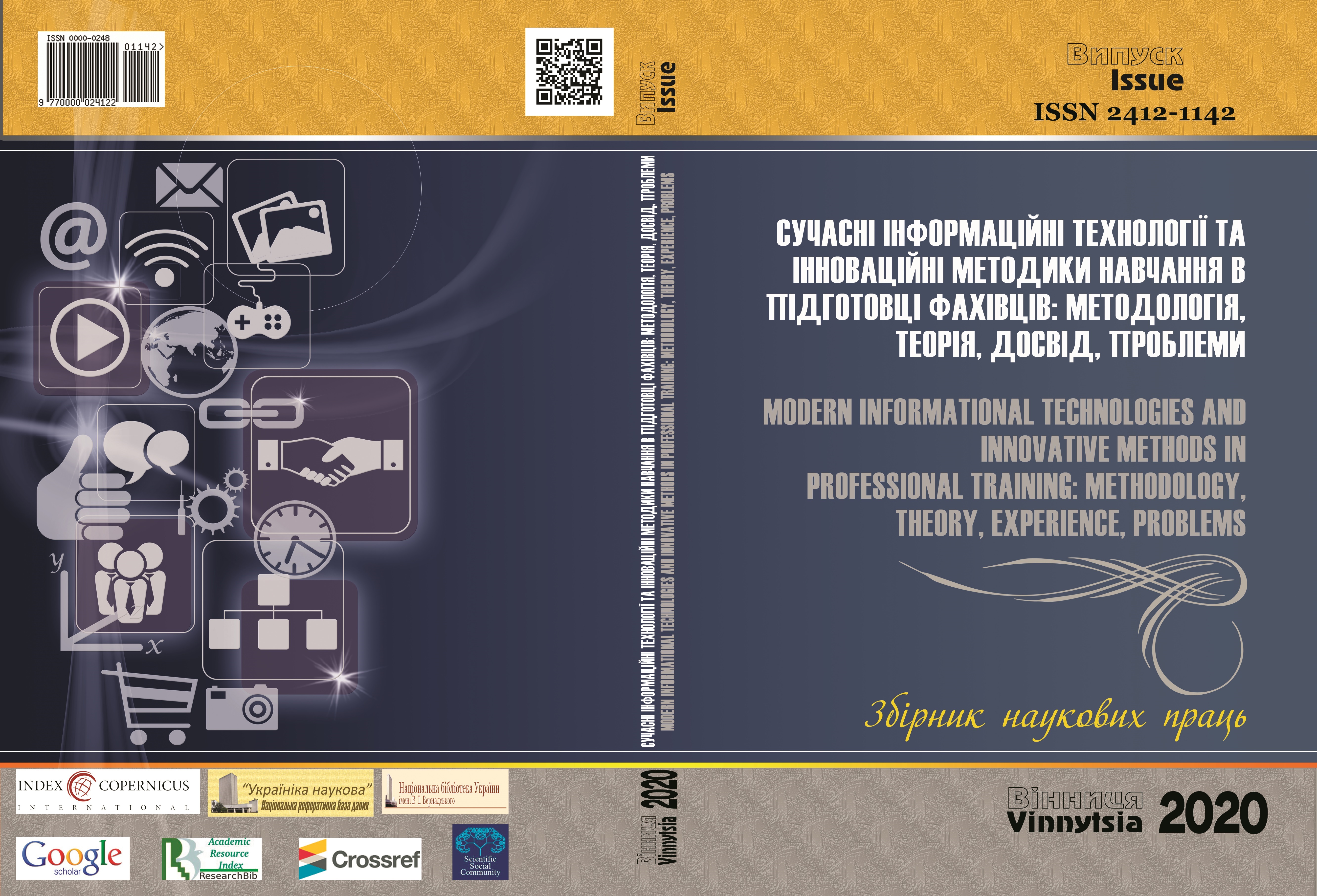AXIOLOGICAL APPROACH IN THE PREPARATION OF FUTURE FOREIGN LANGUAGES TEACHERS FOR PEDAGOGICAL INTERACTION (FROM THE EXPERIENCE OF UNIVERSITIES IN THE REPUBLIC OF POLAND)
DOI:
https://doi.org/10.31652/2412-1142-2020-57-107-113Keywords:
future foreign language teachers, modular training, cognitive activity, communicative competence, experience of the Republic of PolandAbstract
In the last decade, the modular concept of university teacher education in Poland has become the basic one in the system of professional training. The concept is based on the thesis that the module in the training process is a program unit of a conditionally closed segment of the curriculum. Modular units can form program sequences. The developed structure of modules is based on the system of values, aspirations, abilities of learners. It is conventionally called "trails".
The basis of the program structure was the three-element structure of the teacher's professional functions. The first element is a function that covers the sphere of activity that belongs to the axiological dimension, that is, to the first categories that are important for the humanitarian development of human individuality. This function is manifested in the axiological activity of the student and as a result should lead to the formation of an axiological establishment of pedagogical actions. The second element is the category of professional functions related to cognitive processes. The implementation of these functions creates the orientation basis of teacher's pedagogical work, which is determined mainly by knowledge of pedagogical activities of various dimensions. The third element of the structure covers the praxeological level of teacher's qualifications, that is, the presence of skills and practical snorting, as well as creative and methodological competencies.
The article describes some experience of scientists and teachers of the Republic of Poland in introducing the modular concept of university teacher education based on the axiological approach; the analysis of its purposes, structure, methodical equipment is given; highlights positive achievements and some shortcomings that are useful for borrowing and implementation.
Downloads
References
Адамек Ф. Позакризова тотожність у напрямі особистісної педагогіки. - Warszawa, 1994. – 116 с.
Квятковська Г. Еволюція особистісної педагогіки. – Warszawa, 2002. – 147с.
Морітз Я. Система професійної підготовки вчителя та напрями оптимізації в обставинах розвитку
сучасної освіти в Польщі / Дис...докт. пед.наук – Краків, 2005. – 675 с.
Сисоєва С. Порівняльна педагогіка в контексті розвитку освітології. – Хрестоматія. Порівняльна
педагогіка: методологічні орієнтири українських компаративістів.- Київ, 2015. – Т.1. – С.132-142
Downloads
Published
Issue
Section
License
Copyright (c) 2021 Modern informational technologies and innovative methods in professional training: methodology, theory, experience, problems

This work is licensed under a Creative Commons Attribution 4.0 International License.

